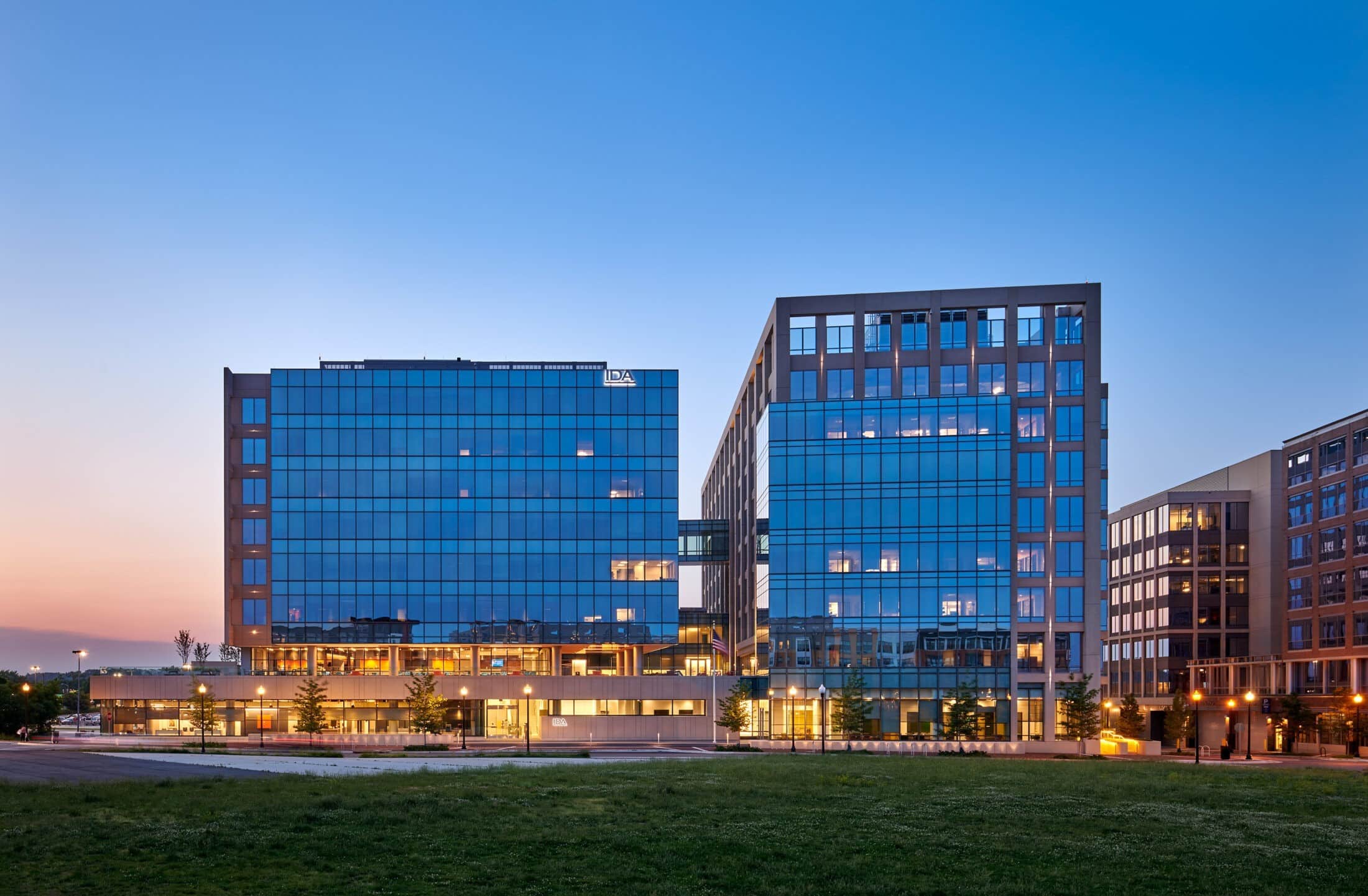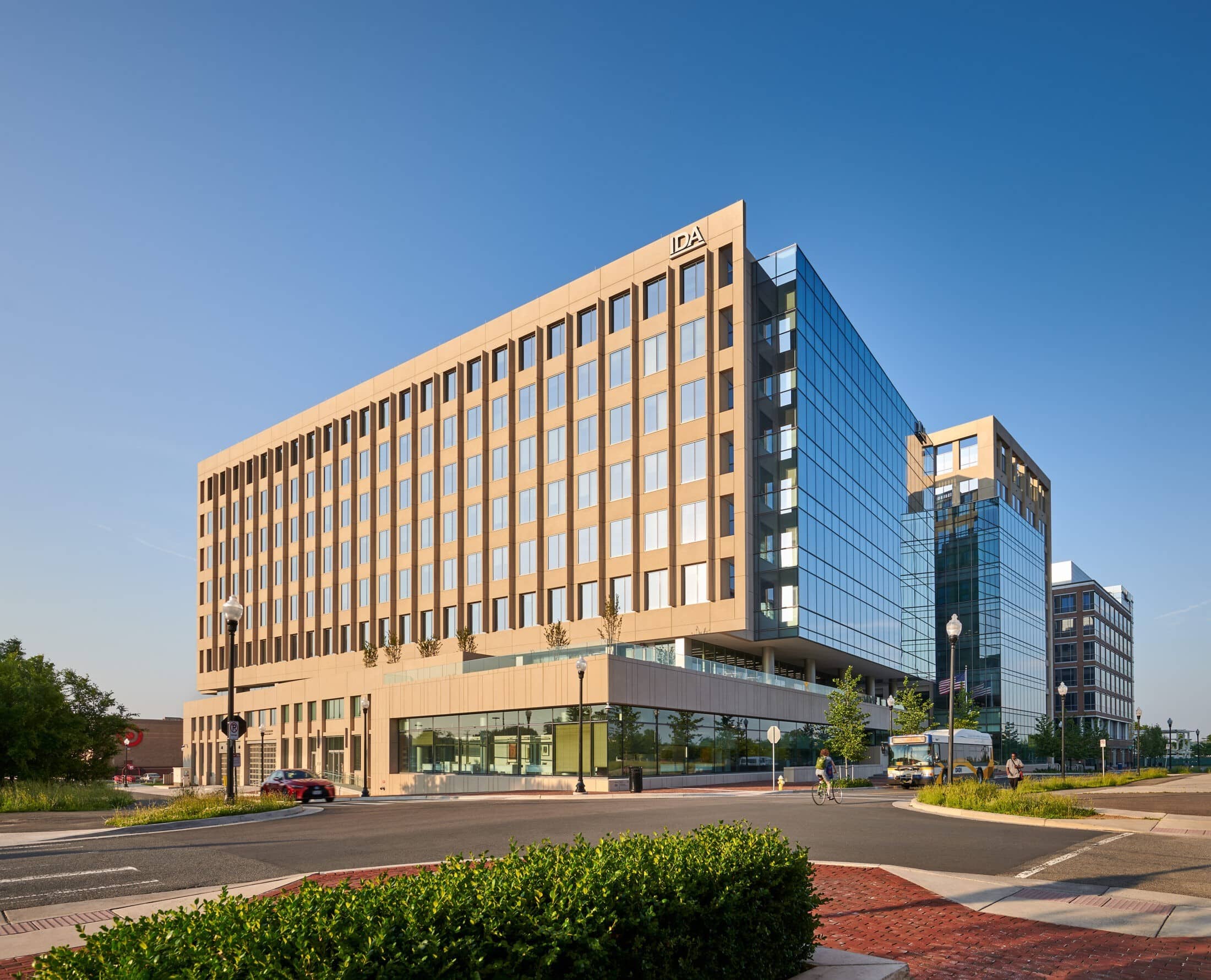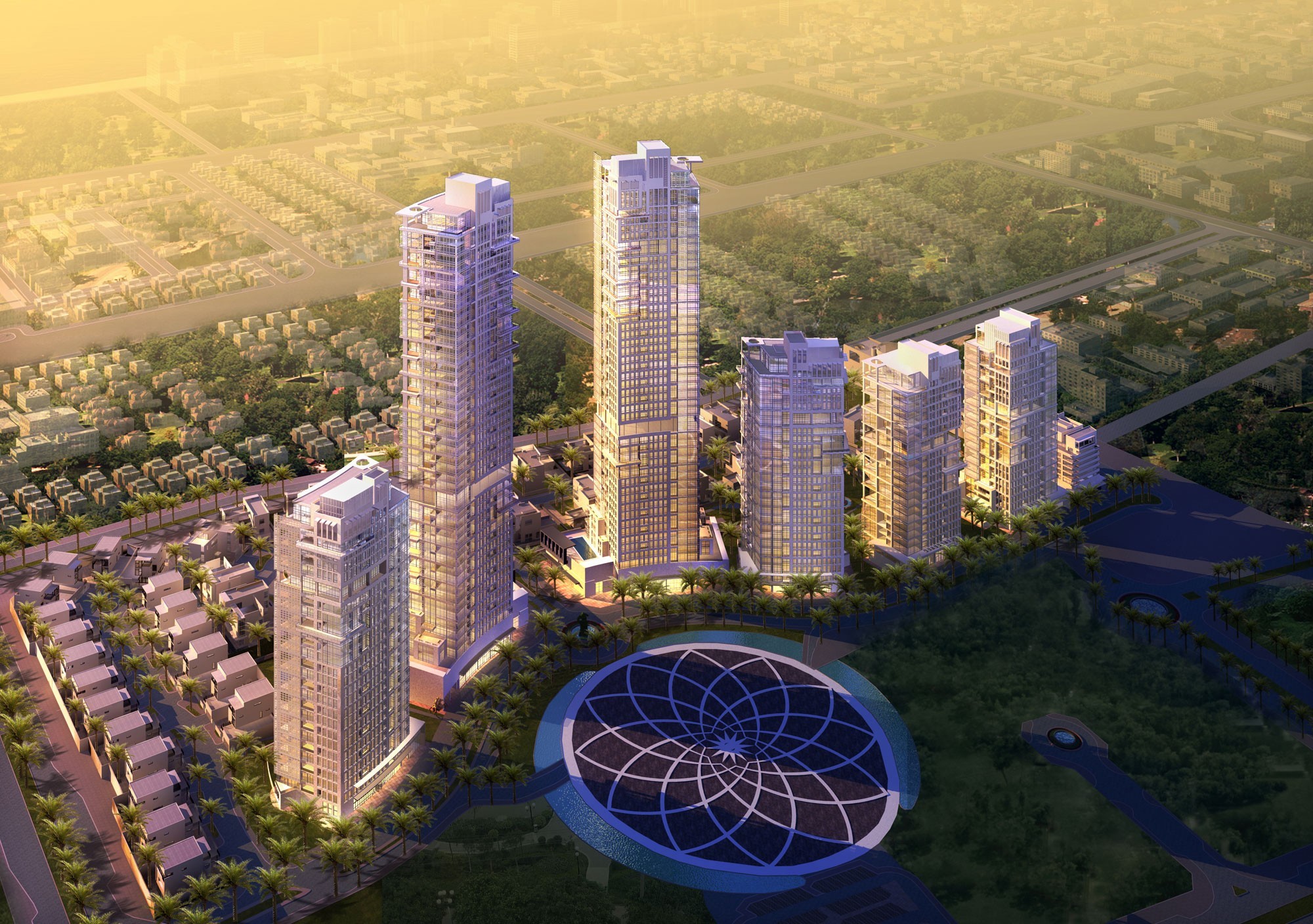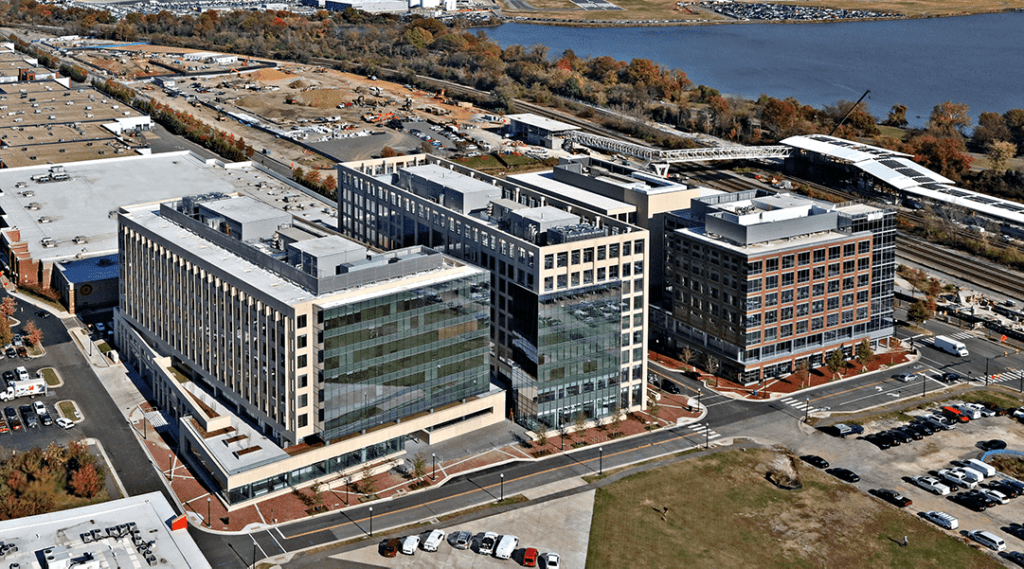Washington, DC (Jan 25, 2022) –
The new building implements the state-of-the-art resilience building strategies.
The completion of the new 370,000 SF Potomac Yard headquarters of The Institute for Defense Analyses (IDA) marks the conclusion of over a decade-long development process and a two-year construction, ahead of schedule and under budget. The new IDA headquarters will allow more than 1,000 employees to use mass transit and be within easy reach of the Pentagon, IDA’s primary client.
The construction started just before the pandemic, in response to the COVID-19 crisis, the design team led by KGD Architecture and Arup worked while the building was in construction to identify and implement strategies that reduce the risk of virus transmission and build overall organizational resilience.
For IDA – a non-profit dedicated to answering the most challenging U.S. security and science policy questions – safeguarding the health of staff and staying up and operational under hazardous conditions was critical. The design team deployed an array of resilience-building strategies, including interventions aimed at combatting the spread of infectious diseases. The implemented measures include enhanced filtration, ultraviolet germicidal irradiation (UVGI), humidification, and ceiling fan design for increased circulation, as well as 3D modelling of epidemiological scenarios and space usage patterns.
KGD Architecture master planned the two-tower complex in 2012. The design of the IDA headquarters in Potomac Yard fulfills the vision of a landmark office building that anchors this new community. While meeting the client’s need for security, the project successfully embraces the new street grid and the new plaza by orienting the main lobby and visitor spaces to these more public elements and placing the secondary secure entrances on side streets. The lobbies and street facing spaces were turned into art galleries displaying IDA’s robust art collection to the public.
The cafeteria on the second floor opens out into a landscaped secure courtyard that connects to the conference center through a two-story lobby, visual connections are provided by skylights. Dining areas of the cafeteria merge into outdoor seating and eating spaces allowing the occupants to connect with nature. The fitness center on the upper floor opens out to an internal courtyard with views of the skyline of Washington DC monument views.





